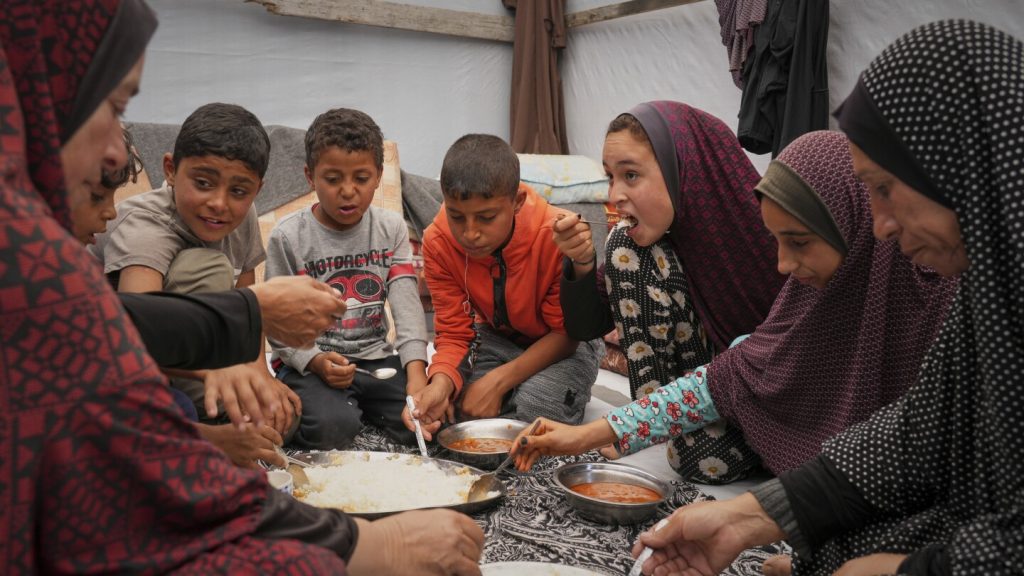KHAN YOUNIS, Gaza Strip (AP) — For nearly 60 days, the Gaza Strip has experienced a complete blockade from Israel, with no food, fuel, or medical supplies entering the area. Aid organizations report that they are running low on food supplies and that markets are nearly empty, leaving Palestinian families struggling to feed their children.
In a tent camp near Khan Younis, Mariam al-Najjar and her mother-in-law boiled a pot of canned peas and carrots over a wood fire, which, along with a small serving of rice, was the only meal for their family of 11 on that Friday.
Traditionally, Fridays are significant for Palestinian families, typically filled with large meals of meat and traditional dishes. Al-Najjar lamented, “Now we eat peas and rice. We never consumed canned peas before the war; it’s a stark change that has shattered our lives.”
The 2.3 million residents of Gaza now primarily rely on canned vegetables, rice, pasta, and lentils. Essential items like meat, milk, cheese, fruits, and even bread and eggs have become almost nonexistent and overpriced, making them unaffordable for most families.
Escalating Food Insecurity
Following the blockade imposed on March 2, which resumed military operations on March 18, humanitarian groups have condemned it as a “starvation tactic.” They argue that it jeopardizes the entire population of Gaza and may even constitute a war crime.
Prevalence of Malnutrition Among Children
Medical professionals are sounding the alarm about the adverse effects of a nutritionally deficient diet on children, stressing the urgent need for essential nutrients for healthy development. The U.N. reported a staggering 80% rise in acute malnutrition cases among children in March compared to February.
Desperation in Local Markets
The local markets in Khan Younis have become desolate, with most stalls empty and the few that remain open offering exorbitant prices. For instance, a kilogram of tomatoes can cost around $14, compared to just a dollar before the war.



